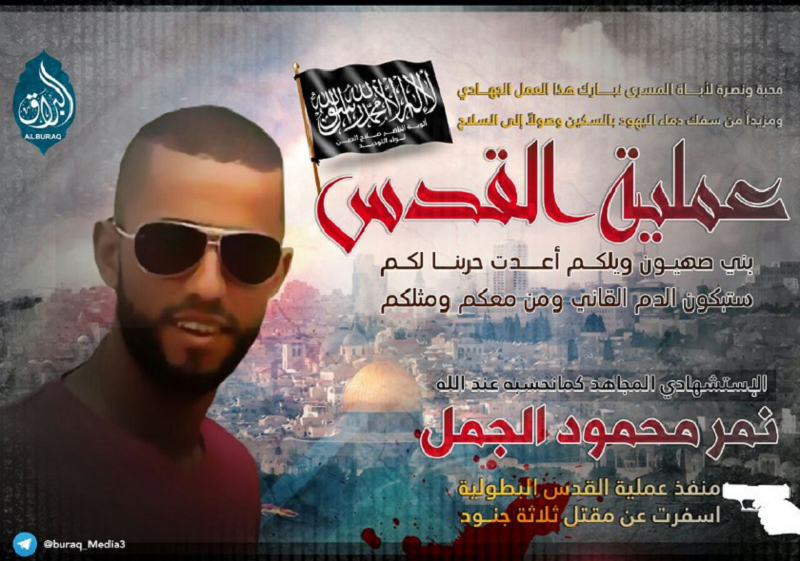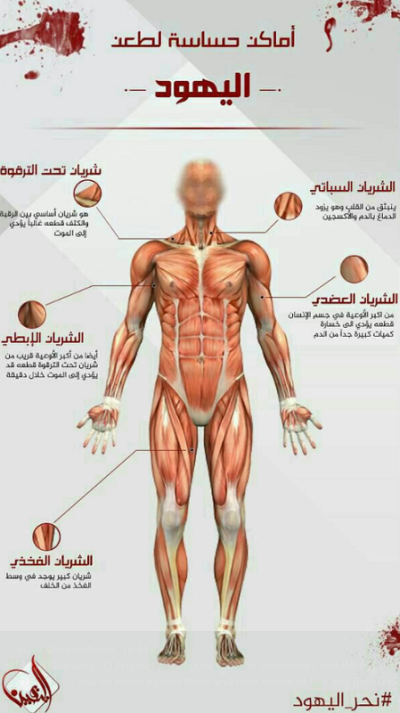
Related Content
September 28, 2017
Following the September 26 attack in the West Bank settlement of Har Adar, in which a Palestinian gunman killed three Israelis, extremist groups have been posting on various forums to celebrate the attacks and incite violence against Israel and Jews worldwide.
While no group has claimed responsibility for the attack, many have posted lauding the attacker and calling him “a heroic martyr,” as Hamas stated on the day of the attack. The Al-Tawhid Brigade Telegram channel, Buraq Media, posted multiple banners, congratulating “Mujahid Nimr Jamal” on the “heroic operation,” and asking “everyone not to neglect Jerusalem,” suggesting that prospective attackers should continue to focus on the city. They also stated that Jews will not be secure “in [their] country until liberation and the rule of Allah prevails.”
On the morning after the attack, the channel posted a banner featuring the attacker, sending “love and support to [the attacker’s] parents,” further encouraging violence against Jews—“and more shedding of Jewish blood with knives to arms.”
Islamic State supporters have used the attack to disseminate violent propaganda explicitly urging followers to attack Jews with knives. One channel posted an infographic that has been circulated on social media since 2016, highlighting sensitive places to stab Jews via a diagram of the musculature of an adult man, and coupled with an image of Israeli soldiers running from a fiery explosion with Arabic and Hebrew text that reads: “The Gates of Hell Await You.”
As has been the case following previous Jerusalem attacks, the common Arabic hashtag, “#Jerusalem_Operation” surfaced on Twitter after Tuesday’s shooting. Nearly 7,000 tweets and retweets use the hashtag to discuss the attack, discussing the killings in a congratulatory manner with phrases like “Allahu Akbar,” “the heroic operation,” and “Three Zionist soldiers to hell and the fate of a Palestinian hero.”
This type of language is reminiscent of the chatter we saw following the July 14th attack on al-Aqsa mosque, in which three Israeli-Arab gunmen shot and killed two Israeli police officers (read ADL’s analysis here).
Following the al-Aqsa attacks, thousands of Twitter users posted blatantly anti-Semitic content, inciting violence against Jews. We saw similar rhetoric after this week’s attack – a sign that these post-attack spikes in anti-Semitic sentiment appear to be part of an ongoing phenomenon.










